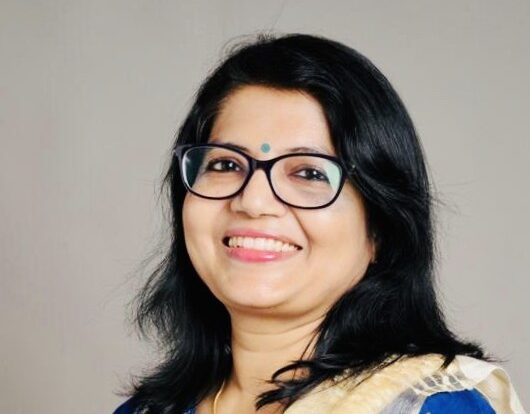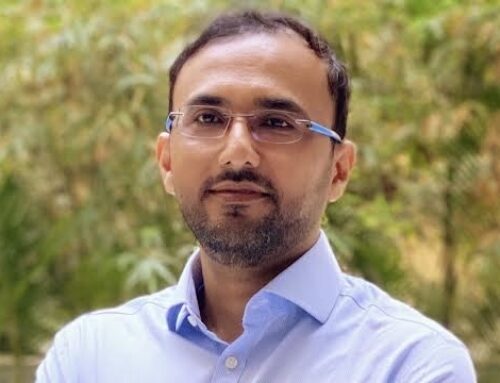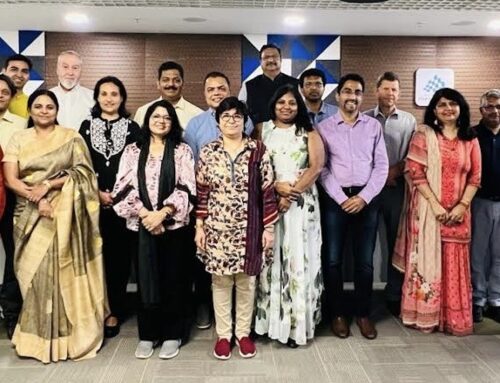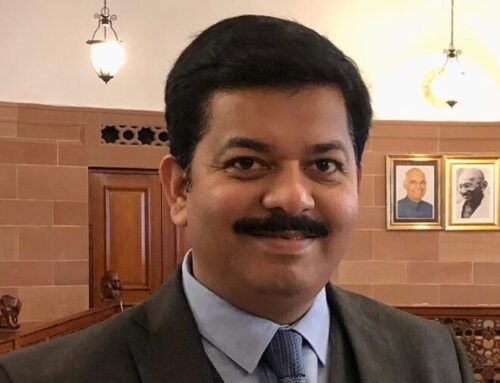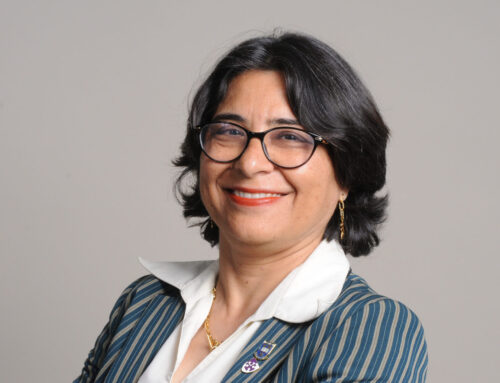John Hoffmire: Let me ask you a fun question first. You have a PhD in Palaeobotany. How did you end up in the innovation, incubation and start-up management field?
Manisha: It has been a long and interesting journey. The short answer is that early on in my career, I moved a lot to various parts of India due to the transferrable nature of my husband’s job. During that time, I took a voluntary sabbatical of about seven years to see through the raising of my son and created for myself the opportunity to work from home. This was the ideal time to acquire new skill sets in IT, intellectual property rights issues, and business management, which eventually directed me towards the challenging field of innovation and incubation management.
I started my corporate career with a US-based company dealing with Nutraceutical and Botanical products. Then, in 2011, I decided to combine my life science academic interests and research with my corporate skills and work in the space of Innovation and entrepreneurship particularly in Life Science, Biotechnology and Agri-tech and Food-tech businesses. I took a management position with KIIT Technology Business Incubator (KIIT-TBI), which is an initiative of KIIT University and supported by National Science & Technology Entrepreneurship Development Board (Dept. of Science & Technology (DST), Government of India. In about five years, I navigated the KIIT TBI from an infant incubation center to a “Centre of Excellence” recognized by the Government of India, now with over 230 start-ups incubated and over 90 types of intellectual property created.
Currently, I am the CEO of Indigram Labs Foundation, one of India’s leading Agri-business incubators, also supported by DST, and based in New Delhi.
John: Is your work then primarily in Agri-tech?
Manisha: My current work involves supporting start-ups primarily engaged in Agri-Tech, Food Tech, Clean Tech and Rural healthcare. Innovations in these areas are of utmost importance in our country, more so now as the COVID-19 pandemic has posed unprecedented challenges to our economy including the entire start-up ecosystem. To meet these challenges, the Government of India has joined hands with various stakeholders in order to extend support to start-ups
As an incubator, our role is of great importance as we not only facilitate start-ups to develop solutions to deal with the aspects of the current crisis, but also prepare the country to deal with improving the economy after the crisis. We do this through the promotion of start-ups by coming up with innovative solutions which help in the creation of jobs.
Given our focus, Indigram Labs Foundation has the ability to provide solutions that can directly benefit rural India. Farming engages the majority of our population and it is currently experiencing the influx of returning laborers. Hence, it becomes immensely important to provide these rapidly growing rural communities with more efficient and advanced technology to improve productivity and effectively use the available manpower. It is also essential that we help facilitate better access to healthcare and education.
I would also like to say that it is extremely gratifying to be part of an industry that is addressing many of these societal as well as developmental needs of the country.
John: Throughout your career, you have been honored with academic excellence awards. One of them included a fellowship in the Chevening Research Science and Innovation Leadership Programme (CRISP). Tell me about your time with the CRISP programme?
Manisha: In 2019, I was awarded a Fellowship to attend the Chevening Research Science and Innovation Leadership Programme (CRISP) at St Cross College at Oxford University. The ten-week course included numerous site visits in the UK and other parts of Europe, classes, guest lectures, and projects focused on leadership, science and technology, innovation and management, as well as wider issues including global challenges, politics, international relations, and personal development etc. We were also treated to various cultural programmes designed to integrate CRISP Fellows into the academic and cultural life of the university and its departments. These programs also helped us build and expand our professional network.
It was a fabulous opportunity to step out of my roles and responsibilities for a time and to focus on gaining new perspectives. I was able to cross-pollinate ideas with extraordinary colleagues from all over India and Sri Lanka, and I learnt from top professors and professionals in their field. I encourage anyone considering a strong value-add in his or her innovation related careers, especially women, to apply for the fellowship. It will be a game changer for you.
John: What next? What do you desire to work on in the future?
Manisha: I wish to work for women entrepreneurs. Even as India has climbed up to become the third-largest start-up ecosystem in the world, the contribution of female entrepreneurs rarely makes the headlines. I believe that, with motivation and provision of a proper direction, women entrepreneurs can do wonders. Women are adept at multitasking, balancing work and family life expectations, along with wider contributions to the society as a whole. The systematic approach used to balance these multiple requirements, as well as the focus on interpersonal relationships, give them a disposition that can make them good leaders. Thus if the number of women entrepreneurs goes up, it is expected that the economic condition of India shall also improve vastly.
John: That sounds truly inspiring. All my best wishes.
Manisha: Thanks so much John.
Read the entire interview here at the Center on Business and Poverty
Dr. Manisha Acharya is CEO of Indigram Labs Foundation and member of the Expert Advisory Committee of i-STED, Programme of Ministry of Science and Technology, Government of India. She was a Chevening Research Science and Innovation Leadership Programme (CRISP) Fellow in 2019.
Interviewer: Dr. John Hoffmire is the Chairman of the Center on Business and Poverty, and Research Associate at the Oxford Centre for Mutual and Co-owned Business.
Click here for more information on Indigram Labs Foundation

